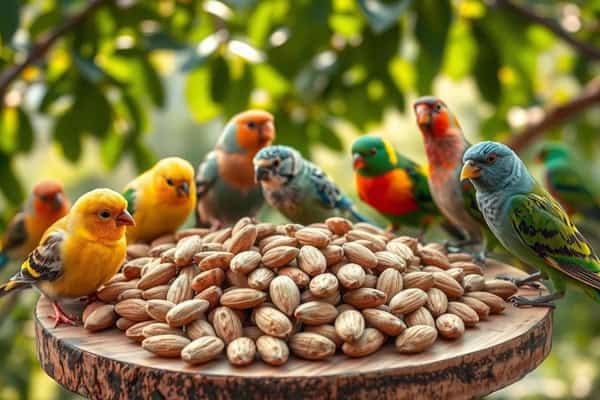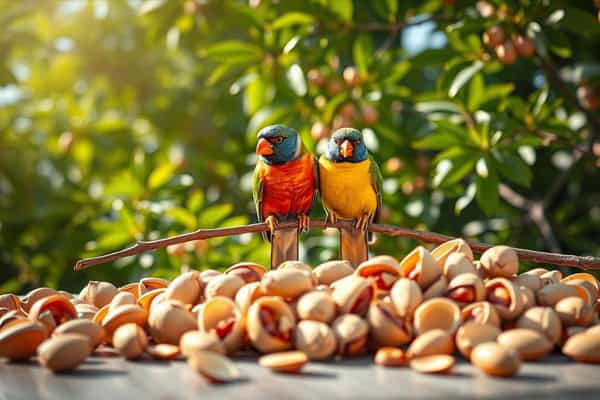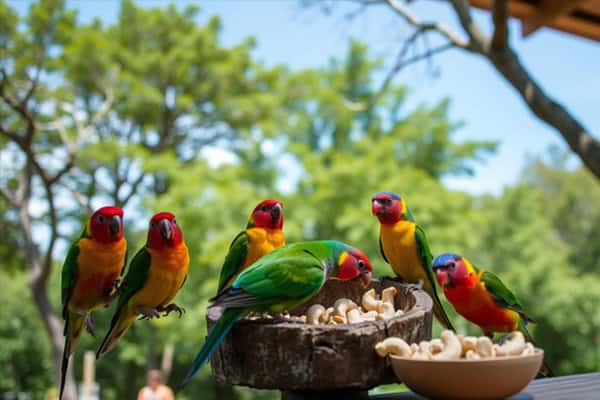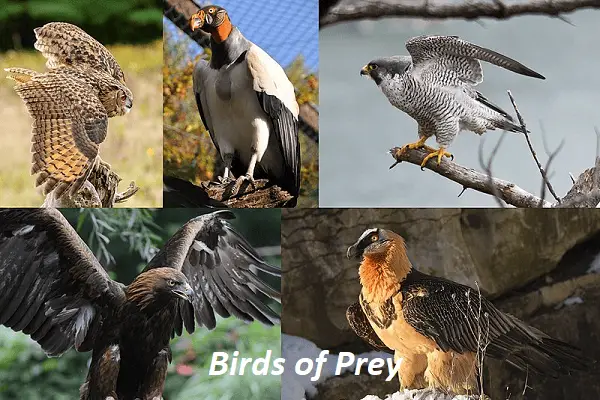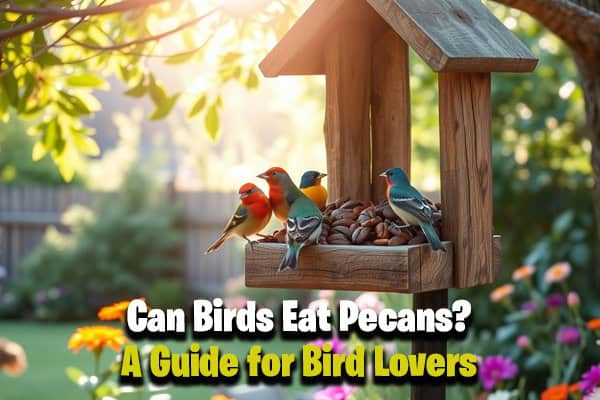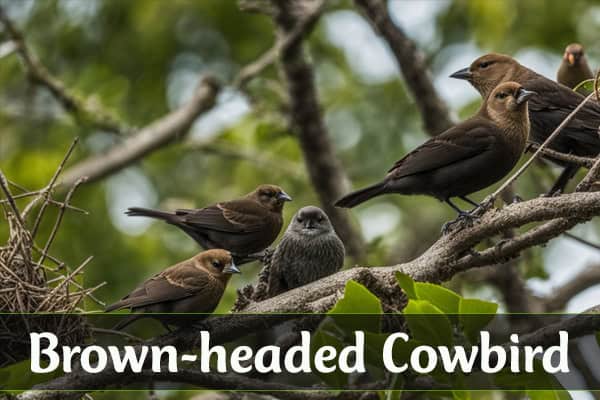Can Birds Eat Almonds? A Safe Feeding Guide
Can Birds Eat Almonds? Choosing the right snacks for our feathered friends is important. We often wonder if almonds are safe for them. As bird owners, we want to give them a diverse and nutritious diet.
But are almonds good for birds? Let’s look at the nutritional benefits and risks. We’ll make sure our birds get safe almonds that help their health.
Understanding Avian Diets
Knowing what birds eat is key to their health. A diet that fits their species keeps them happy and active. Birds need different foods for good health. This variety helps them grow well and live better lives.
The Importance of Variety in Bird Nutrition
It’s important to mix up what birds eat. Each bird needs special nutrients. Big birds like jays eat whole nuts, while small ones like chickadees prefer smaller pieces.
Knowing what each bird likes helps us feed them right. This makes sure they get all the nutrients they need.
Common Food Sources for Birds
Birds eat seeds, fruits, nuts, and veggies. Each type is important for their diet:
- Seeds and grains give them energy.
- Fruits add vitamins and water.
- Nuts are great for energy, especially in cold weather.
- Vegetables add fibre and more nutrients.
By mixing these foods, we make a great home for our birds. Planting trees that bear nuts turns our yards into feeding spots. This gives birds healthy food and makes our yards better for them.
Can Birds Eat Almonds?
Almonds can be a good snack for birds. They have protein, healthy fats, vitamins, and minerals. Birds like Blue Jays love nuts, including almonds. Woodpeckers, chickadees, nuthatches, and titmice can eat almonds too, if they’re broken into small pieces.
Nutritional Benefits of Almonds for Birds
Almonds are good for birds. They have:
- High in protein, which supports overall growth and energy.
- Rich in healthy fats that contribute to a shiny coat and healthy skin.
- Contains essential vitamins and minerals that aid various bodily functions.
- Provides energy, making them a suitable occasional treat.
When feeding almonds to birds, ensure they are plain, unsalted, and raw. Give them in small amounts to avoid choking hazards, especially for smaller birds.
Potential Risks of Feeding Almonds
Almonds have benefits but also risks. Too many can cause obesity and dietary imbalances. Some birds might have health problems if almonds are not introduced correctly. It’s best to stick to a balanced diet of seeds, fruits, and insects closer to their natural diet.
| Bird Species | Almond Preference |
|---|---|
| Blue Jay | High |
| Woodpecker | Moderate |
| Chickadee | Acceptable |
| Nuthatch | Acceptable |
| Titmouse | Acceptable |
In summary, knowing the good and bad of almonds helps us feed birds wisely.
Safe Almonds for Birds: What You Need to Know
Can Birds Eat Almonds? Choosing the right almonds for our birds is key. Raw and roasted almonds have different qualities. Knowing the difference helps keep our birds healthy.
Raw vs. Roasted Almonds
Raw almonds are best because they keep more nutrients. Make sure they’re unsalted to keep our birds safe. Roasted almonds might lose some nutrients. But picking unsalted ones is still safe for birds.
Salted and Flavored Almonds: A No-Go
Salted almonds are bad for birds because of too much salt. Flavored almonds are also a no. We should only give plain, unsalted almonds to keep our birds healthy.
How to Incorporate Almonds into Your Bird’s Diet
Adding almonds to our birds’ diets can be good, but we must be careful. Serving almonds in small pieces keeps feeding healthy. Slowly adding almonds lets us see how our birds like them and adjust as needed.
Serving Suggestions for Feeding Birds Almonds
Remember, a little goes a long way with almonds. Here are some smart ways to add them to your birds’ meals:
- Give almonds as an occasional treat with regular birdseed.
- Break almonds into small pieces for easier eating.
- Try mixing almonds with other safe nuts like pecans and hazelnuts for variety.
- Use almonds to make foraging fun, hiding them in toys or puzzles.
Dos and Don’ts in Almond Feeding Practices
Knowing the right and wrong ways to feed almonds is key. Here are some important tips:
| Dos | Don’ts |
|---|---|
| Start with small amounts to watch for any issues. | Don’t give whole almonds too often, as they might be too big. |
| Stick to raw or unsalted almonds only. | Never give salted, flavoured, or sweetened almonds. |
| Pair almonds with main foods for a balanced diet. | Don’t make almonds the main food. |
| Watch how much you give based on your bird’s size: 3 to 4 for small macaws, 6 to 8 for large macaws. | Don’t ignore portion sizes, as too many nuts can cause obesity. |
By following these tips, we can make adding almonds to our birds’ diets safe and fun. It helps keep their diet balanced and their health in check.
Almonds and Bird Health: A Closer Look
Adding almonds to a bird’s diet can help their health. Almonds give birds the energy they need. They also have good fats that help birds’ bodies work right.
But it’s important not to give too many almonds. Too many can make birds too fat because of the fat in almonds.
Impact on Weight and Energy Levels
Almonds can make birds more energetic. They have protein that helps birds grow strong. Almonds also have vitamins and minerals that are good for birds.
- Vitamin E for immune function
- Riboflavin for energy production
- Folate for proper cell function
- Minerals such as calcium, magnesium, and zinc for bone and muscle health
Even though almonds are good, we must watch how much we give. We should make sure our birds stay at a healthy weight. Watching them closely after giving them almonds is key to catching any problems.
Allergies and Sensitivities in Birds
Not every bird can eat almonds safely. Some birds might have allergies or sensitivities. This can make them sick.
- Skin irritation or feather plucking
- Digestive distress
- Behavioural changes
We should watch our birds closely when we give them almonds. If they show signs of being sick, we should immediately see a vet.
In short, almonds can be good for many birds. They give important nutrients. But, we must be careful with how much we give and watch for allergies. This helps keep our birds healthy and happy.
| Nutrient | Benefit |
|---|---|
| Fatty Acids | Supports metabolic functions |
| Protein | Promotes muscle growth and development |
| Vitamin E | Enhances immune function |
| Minerals (Calcium, Magnesium, Zinc) | Strengthens bones and muscles |
Conclusion
Can Birds Eat Almonds? We know almonds can be good for our birds’ diets if we give them carefully. Understanding the good and bad of almonds helps keep our birds healthy. Giving almonds as a rare treat is good for them and fun for us.
It’s important to feed almonds the right way and watch for any bad reactions. Thinking about how almonds fit into our birds’ diets helps them stay healthy. Giving them almonds, especially plain ones, adds to their diet and makes them happy.
By following these tips, we make a better home for our birds. With careful feeding, we help our birds stay happy and healthy. This way, we enjoy their company even more.

